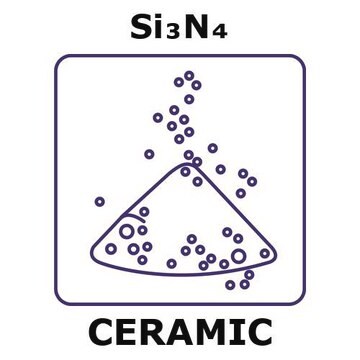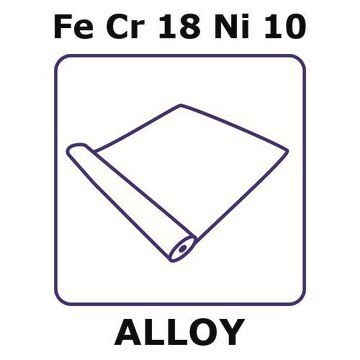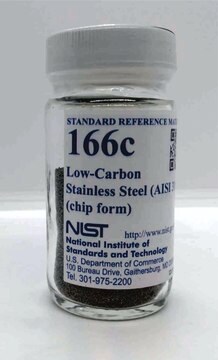Alle Fotos(2)
Wichtige Dokumente
GF64342188
Silikon
rod, 50mm, diameter 6mm, single crystal, -111, 99.999%
Synonym(e):
Silizium
Anmeldenzur Ansicht organisationsspezifischer und vertraglich vereinbarter Preise
Alle Fotos(2)
About This Item
Lineare Formel:
Si
CAS-Nummer:
Molekulargewicht:
28.09
MDL-Nummer:
UNSPSC-Code:
12141911
PubChem Substanz-ID:
NACRES:
NA.23
Empfohlene Produkte
Assay
99.999%
Form
rod
Hersteller/Markenname
Goodfellow 643-421-88
L × Durchm.
50 m × 6 mm
bp
2355 °C (lit.)
mp (Schmelzpunkt)
1410 °C (lit.)
Dichte
2.33 g/mL at 25 °C (lit.)
SMILES String
[Si]
InChI
1S/Si
InChIKey
XUIMIQQOPSSXEZ-UHFFFAOYSA-N
Suchen Sie nach ähnlichen Produkten? Aufrufen Leitfaden zum Produktvergleich
Allgemeine Beschreibung
For updated SDS information please visit www.goodfellow.com.
Rechtliche Hinweise
Product of Goodfellow
Hier finden Sie alle aktuellen Versionen:
Analysenzertifikate (COA)
Lot/Batch Number
Leider sind derzeit keine COAs für dieses Produkt online verfügbar.
Wenn Sie Hilfe benötigen, wenden Sie sich bitte an Kundensupport
Besitzen Sie dieses Produkt bereits?
In der Dokumentenbibliothek finden Sie die Dokumentation zu den Produkten, die Sie kürzlich erworben haben.
Atteq ur Rehman et al.
TheScientificWorldJournal, 2013, 470347-470347 (2014-01-25)
The p-type crystalline silicon wafers have occupied most of the solar cell market today. However, modules made with n-type crystalline silicon wafers are actually the most efficient modules up to date. This is because the material properties offered by n-type
Dominique Collard
Frontiers in bioscience (Elite edition), 5, 955-965 (2013-06-12)
In modern life, technologies enabling detection of biological molecules at a low threshold, for health and ecological concerns, are in high demand. Directly interrogating the molecules is a promising direction to clarify the noisy response of conventional assays arising from
Jacob Raber et al.
Radiation research, 181(4), 362-368 (2014-03-29)
The space radiation environment consists of multiple species of high-energy charge particles (HZE), including (56)Fe and (28)Si nuclei, that may impact neuronal cells, but their damaging effects on the central nervous system (CNS) have been poorly defined. Hippocampus-dependent memory functions
Bomin Cho et al.
Journal of nanoscience and nanotechnology, 14(7), 4832-4836 (2014-04-25)
Asymmetric porous silicon multilayer (APSM)-based optical biosensor was developed to specify human Immunoglobin G (Ig G). APSM chip was generated by an electrochemical etching of silicon wafer using an asymmetric electrode configuration in aqueous ethanolic HF solution and constituted with
Timothy J Barnes et al.
Therapeutic delivery, 4(7), 811-823 (2013-07-26)
Porous silicon (pSi) is a nanostructured carrier system that has received considerable attention over the past 10 years, for use in a wide variety of biomedical applications, including biosensing, biomedical imaging, tissue scaffolds and drug delivery. This interest is due
Unser Team von Wissenschaftlern verfügt über Erfahrung in allen Forschungsbereichen einschließlich Life Science, Materialwissenschaften, chemischer Synthese, Chromatographie, Analytik und vielen mehr..
Setzen Sie sich mit dem technischen Dienst in Verbindung.




